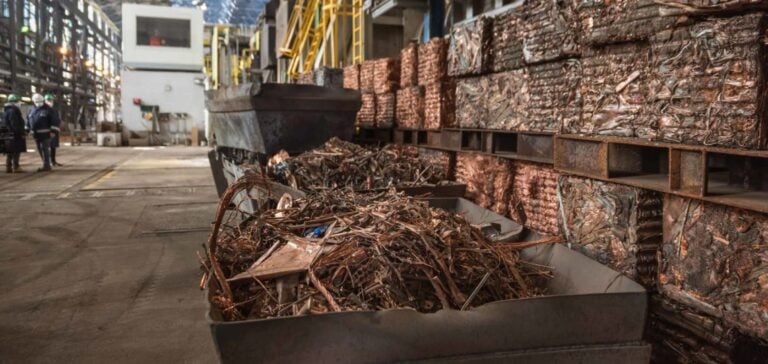The management of metallic waste in France reveals untapped economic and ecological opportunities. A recent report by the consulting firm Oliver Wyman highlights the importance of “urban mines” — recycling metals from demolitions, scrap vehicles, or electrical networks.
In 2021, France exported six million tons of metallic waste, the highest volumes in Europe. These materials are primarily recycled in countries like Belgium, Germany, or Italy, which are major net importers of these resources. Yet, this waste represents a significant asset for the national economy.
A Strategic Issue for Copper
Copper lies at the heart of these concerns. Essential for the energy transition, it is critical for manufacturing electrical cables. France consumes 257,000 tons of this metal annually to meet the rising demand linked to electrification. Simultaneously, 218,000 tons of copper waste are collected, but only 66,000 tons are recycled locally.
The remainder, around 206,000 tons, is exported, while 53,000 tons are imported. This situation creates a trade imbalance deemed problematic by the report. According to Éric Confais, a partner at Oliver Wyman, doubling copper recycling could reduce France’s trade deficit by 3% while accelerating the decarbonization of the waste sector.
Industrial and Regulatory Challenges
To harness this potential, France must modernize its infrastructure. Currently, only one copper recycling plant, operated by Nexans in Lens (Pas-de-Calais), is operational. This facility is planning an expansion by 2026 to increase its capacity by over 50%, achieving an annual production of 80,000 tons of recycled copper.
The report also recommends regulatory adjustments to promote the development of industrial chains for the collection, sorting, and transformation of metallic waste. Introducing quotas for recycled materials, similar to those implemented for plastics, could stimulate local demand.
Restricting Waste Exports: A Solution?
In addition to infrastructure development, regulating the export of metallic waste could strengthen French industrial sovereignty. Currently, foreign companies like Umicor in Belgium or Aurubis in Germany dominate this market, capturing the added value generated by recycling.
By equipping itself with plants capable of separating alloys and clinker, France could not only reduce its dependence on imports but also reinforce its role in the circular economy.






















